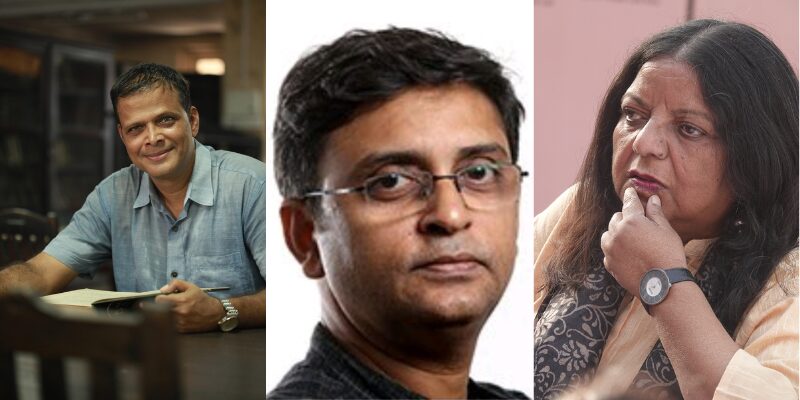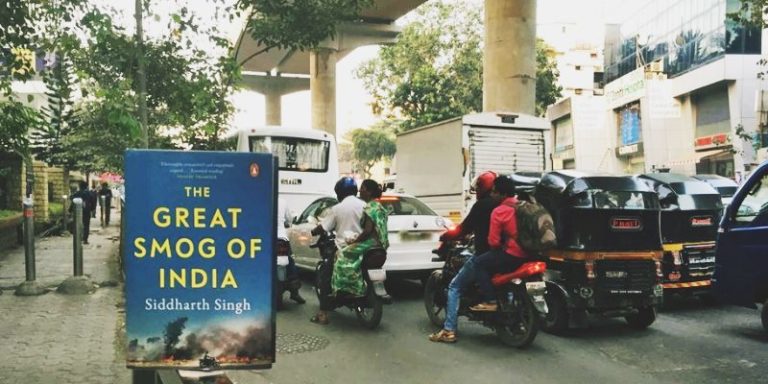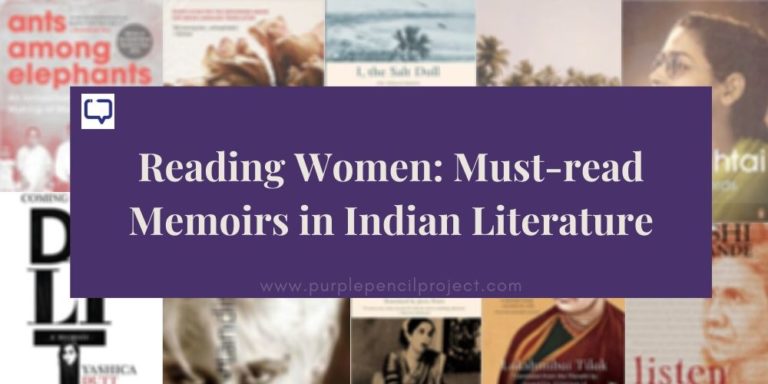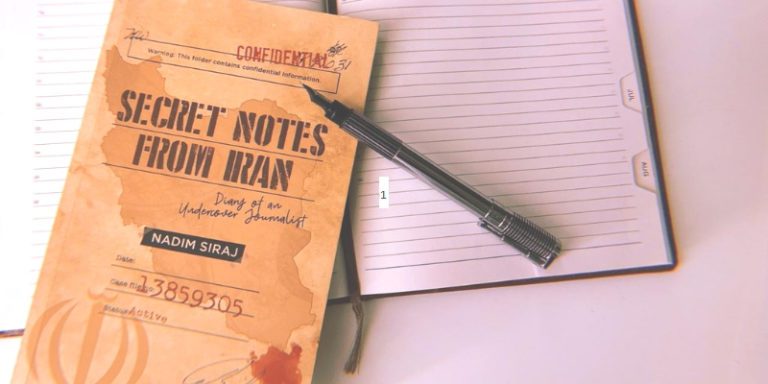Anshika Jain reviews Court Martial and Other Plays by Swadesh Deepak, translated from Hindi by Jerry Pinto, Pratik Kanjilal and Nirupama Dutt (published by Speaking Tiger, 2024).
“The dungeon of art, a dungeon on fire, pulsating with heat. Abandon the prospect of leaving, all those who enter here. There is no way out.”
– Swadesh Deepak, Court Martial and Other Plays
Court Martial and Other Plays by Swadesh Deepak (trans. Jerry Pinto, Pratik Kanjilal, Nirupama Dutt) is one such dungeon. It is a collection of three plays touching upon the themes of class, caste, philosophy of art, and space for ideals in tangible reality.
What Are The Stories?
‘Kaal Kothri’ revolves around Rajat, a theatre actor caught in a fix to choose between art that gives his life meaning and the financial stability for his family via a salaried job. In Jonathan Larson’s play Tick, Tick… Boom!, the song “Therapy” is interspersed with a fight between the couple when Claire says to Jonathan, “You’re the artist and I’m the girlfriend.” This could be called the contemporary crux of this play, where the choice between nourishment of self or family is depicted, the result not quite known, except “There once was a boy. He had his own magical world. Which is known as theatre. In this bewitching world, there is no inflation, no piles of corpses.”
Recommended Reading: Our minds have a heart too: Books about mental health
The second play, ‘The Saddest Poem Ever Written’ is set in a nameless, backward area in India, where a woman named Apoorva is fighting for the revolutionary movement against the system: the sadistic Zamindar, the vindictive mother whose son was killed, the police that protects only the powerful and render the powerless humiliated, every day.

“मैं तुम्हें इसलिए प्यार नहीं करता
कि तुम बहुत सुंदर हो,
और मुझे बहुत अच्छी लगती हो।
मैं तुम्हें इसलिए प्यार करता हूँ
कि जब मैं तुम्हें देखता हूँ,
तो मुझे लगता है कि क्रांति होगी।
तुम्हारा सौंदर्य मुझे बिस्तर से समर की ओर ढकेलता है।”
(I don’t love you because you’re so beautiful,
or because I like you a lot.
I love you because when I look at you,
I feel that a revolution is coming.
Your beauty pushes me from the bed to the battlefield.)
These lines by Ramshankar Yadav ‘Vidrohi’ seem to have been written for Apoorva, a one-of-a-kind woman forced to make a choice between love and revolution. She forces you to think about whether any revolution can be peaceful. Even the Indian Independence movement had its fair share of armed resistance—cue to Bhagat Singh and Subhash Chandra Bose.
Are the Naxalites really the ones who are terrorists, or were they forced to pick up weapons to protect themselves from being throttled down by government bulldozers? Is it really a war when one side is armed with the most advanced weaponry, and the other side is barely able to huddle together pieces of their martyrs and keep alive the ones safe for now?

The titular play ‘Court Martial’ questions the proud claim of the army that there is no caste in the forces except one of fauji. Ramshankar has killed two army officers while on duty. The legal drama posits the reality of the skewed morality that inherently will exist for any army and its laws: is an officer allowed to assault his wife because she is his property, or can he use casteist slurs against his orderly, even if he is a Sawar?
Recommended Reading: The Greatest Hindi Stories Ever Told : Ed. by Poonam Saxena
The army protects the citizens of the nation, but what of the people who make up the army, like in the recent case in Kashmir where an IAF wing commander charged with sexual assault was granted pre-arrest bail because it would “jeopardise his reputation.”
Language is Not Harmless
One of the common themes that can be traced through the three plays here is the weaponisation of language. Meena in ‘Kaal Kothri’ uses the language of theatre by pointing out to Rajat that he cannot keep on waiting for a Godot to come and solve his problems for him. The invocations of other well-known plays like Oedipus Rex and Hamlet highlight the persistence of questions from the past even in the present, with the present just becoming greyer day by day with the increased complications in lives led thanks to capitalistic politics.
Language for sure seems to be a docile tool of communication, but we forget about the less obvious languages used by structures of power, like Apoorva says:
“Okay, sir. You know ten languages. Congratulations. But do you understand any of them? You all know the language of the stick, the language of rape, the language of atrocity, and the ultimate language of encounter. Which one will you use on me?”
– Swadesh Deepak, Court Martial and Other Plays
In ‘Court Martial,’ the central allegation is how army officers, even after independence, are high on colonial hangover with their language practices. One such instance is calling Jawans Johnnies and the use of casteist slurs for lower-ranking officers. But the upper caste officers don’t like it when their full names, kept with keeping in mind the Indian faith in astrology and luck, are taken in court.
Language has power, and Deepak drives home this point with his simplistic language, which is also visible in the translations.
“Interesting Women Characters”
“Sometimes the plays feel like elaborate gedanken, thought experiments in which a group of disparate people are put together and the results are recorded,” Jerry Pinto writes in the introduction to Court Martial and Other Plays. These are slices of life, demonstrating how caste and class still pick at the social fabric of independent India, be it in regards to art, revolution, or the military complex.
The women in these plays shine through as strong characters with distinct voices that do not get lost in the masculine chatter: Meena’s disdain for the family’s financial condition but also the depictions of scenes where she cradles Rajat, Apoorva’s sharpness gets a little blunt in front of Sukant and for his future; Zamindar’s wife’s cunningness to get the revenge of her son’s death when the men in the family seem incapable to do so; and B.D. Kapoor’s wife took the “bold” step to get out of an army, abusive marriage. They make their presence known, falling true to the notion that women are the saddest poem ever written.
Favourite Quote from Swadesh Deepak’s Court Martial and Other Plays
“Oh yes. There’s a difference. Of course, there’s a difference. A wife has a licence to sleep with just one man and she becomes cook, cleaner and baby-making machine. The prostitute meanwhile wanders through five star hotels. Don’t keep talking about marriage. Bloody licenced prostitution.”
Conclusion
When one fine day you feel like reading something that makes you more angry at the world and how things are let to be, read Court Martial and Other Plays by Swadesh Deepak (trans. By Jerry Pinto, Nirupama Dutt, and Pratik Kanjilal). Reading this book makes you wonder how much literature students miss out on when not reading Indian literature in translation. We should all know about this author who went missing from his home when he went for a walk in 2006. Genius comes from madness.
Have you read these powerful stories of caste, class, and revolution? We’d love to hear your thoughts! Comment below and let us know.

















